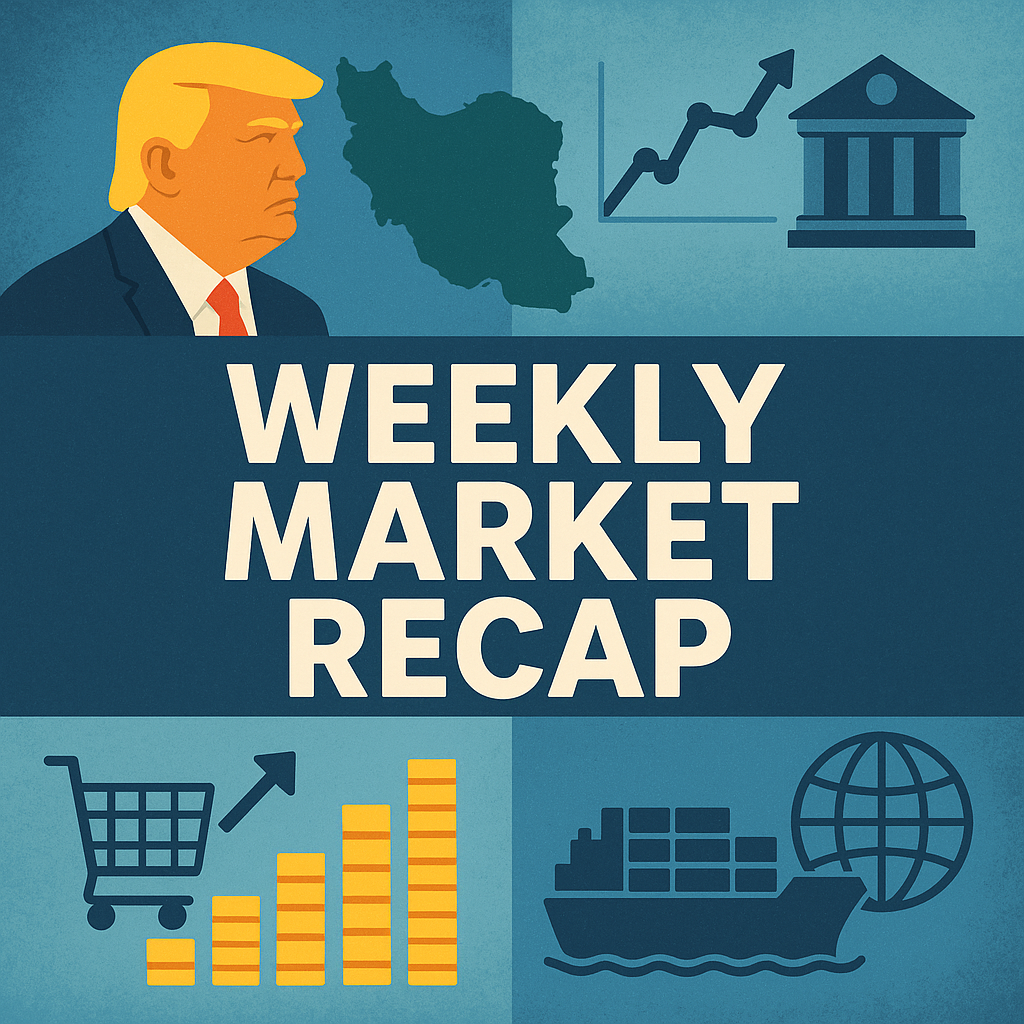Weekly Market Recap – Week Ended June 20, 2025

Markets navigated a mixed set of signals this week, balancing geopolitical tensions, shifting central bank expectations, and macroeconomic data surprises.
On the geopolitical front, US-Iran tensions remained in the spotlight. After an early-week hawkish turn, former President Trump struck a more diplomatic tone later, flagging a “substantial chance of negotiations” with Iran. Meanwhile, despite heightened Israel-Iran tensions, there was no significant disruption to Middle East oil exports and no immediate threat of a Hormuz closure—a key left-tail risk for markets.
Economic data painted a two-sided picture. US core retail sales surprised to the upside in May, rising 0.4% with broad-based strength, and prior-month data saw upward revisions. However, concerns over slowing growth were fueled by weaker housing starts, softer industrial production, and a sharp drop in the Citi US Economic Surprise Index to nine-month lows. Amazon’s CEO also added a cautionary note on employment trends, citing AI-driven workforce reductions.
Monetary policy developments were closely watched. The June FOMC meeting saw the median 2025 dot continue to project two rate cuts, with the Fed noting that uncertainty around the outlook had diminished. However, a hawkish tilt emerged in the 2026-2027 projections, reflecting potential headwinds from tariff increases. Meanwhile, deregulation talk resurfaced, with reports suggesting an up to 150 bps SLR reduction for banks—potentially covering all asset classes.
Global trade remained a source of friction. No material progress was reported on US-EU trade talks ahead of the July 9 reciprocal tariff deadline, with additional unilateral tariff threats from Trump keeping trade risks elevated. EU sources indicated a growing acceptance of a 10% baseline tariff scenario.
Investor sentiment improved modestly. BofA’s latest Global Fund Manager Survey showed that the “soft landing” scenario is now seen as the most likely global macro outcome since last October, while recession fears continued to fade. Supporting that view, Japan announced plans to reduce superlong JGB issuance to stabilize markets, and China reported its fastest retail sales growth in nearly 16 months, aided by policy measures.
Looking ahead, markets will remain sensitive to geopolitical headlines, evolving Fed policy expectations, and further updates on global trade dynamics.

